Search Results
Showing results 41 to 60 of 108
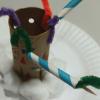
Coral Polyp
Source Institutions
In this activity, learners will create their own coral polyps - the basis for a coral reef.

Bubble Sculpting
Source Institutions
In this activity, learners develop spatial reasoning skills as they blow bubbles and observe what happens when the bubbles connect.
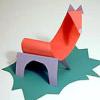
Paper Animals
Source Institutions
This resource contains ideas and brief instructions on how to build animals out of construction paper and other simple materials.

Read Without Seeing
Source Institutions
Learners write a message in Braille using beans to form the patterns of dots. Learners glue beans in place, and then challenge another learner to read the message.
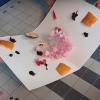
Nature Painting
Source Institutions
In this activity learners will create paint out of natural materials. Explore your natural world (or your fridge) and find berries, leaves, or flowers to find a great base for your paint.
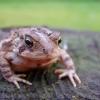
Toad Abode: Creating a Home for a Backyard Toad
Source Institutions
In this activity about backyard habitats learners create a safe and toad-friendly environment near their own home.
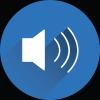
Decibel Cannon
Source Institutions
In this activity, learners will construct an air cannon as a model for the human ear.
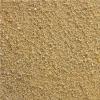
Touch Boards
Source Institutions
Use this activity (13th activity on the page) to introduce learners to the sense of touch. Learners collect objects of varying textures like feathers, rocks, sand, etc.
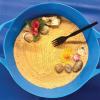
Zany Zen Garden
Source Institutions
In this activity, learners will turn an ordinary tray of sand into a desk-top garden for meditation.
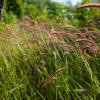
Habitat Observations
Source Institutions
In this outdoor activity, learners discover the wonders of the habitat surrounding them.
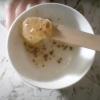
Clean Me Up, Snotty
Source Institutions
Learners will explore the chemistry of mucous and its importance to our health by following a process to make their own replica "snot." The activity includes a time and age recommendation, a materials
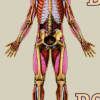
Sketch a Skeleton
Source Institutions
In this activity (on pages 15-18 of PDF), learners make a life-size two-dimensional paper model of their own skeletons.
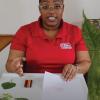
Leaf Rubbings
Source Institutions
When was the last time you took a really close look at a leaf? In this activity, learners will use leaves and simple materials to make colorful leaf rubbings.
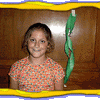
Make a DNA Model
Source Institutions
In this activity, learners make a 3-D model of DNA using paper and toothpicks. While constructing this model, learners will explore the composition and structure of DNA.
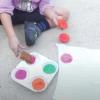
Discovery Time: Trees
Source Institutions
In this activity, young learners (2 years and up) explore tree structure and biology. Tree products are explored by painitng with fruit.

The Carbon Cycle and its Role in Climate Change: Activity 3
Source Institutions
In this activity, learners explore the human influences on the carbon cycle and examine how fossil fuels release carbon.
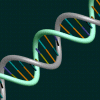
String Genome
Source Institutions
In this biology activity (page 5 of the PDF), learners use yarn and sticky labels to build a model of a DNA strand. They discover that DNA is very long, very skinny, and packs well into cells.
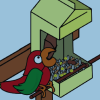
Bird Feeders
Source Institutions
In this activity, learners build a bird feeder or feeders to attract birds for observation.
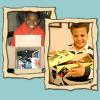
Create Your Own Time Capsule
Source Institutions
In this archaeology-related activity, learners build their own time capsule and choose a storage location and a date to reopen it.
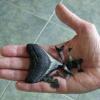
Chomp
Source Institutions
In this activity (page 5 of pdf), learners explore the relationships between the shape and structure of a shark's teeth and the food it eats, and then create their own shark tooth from clay.
